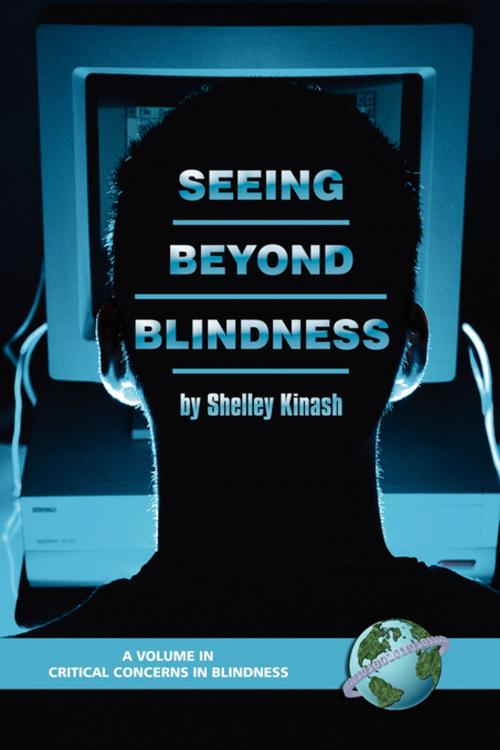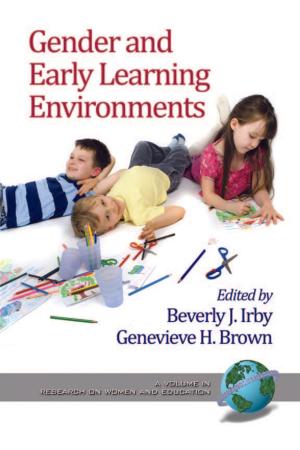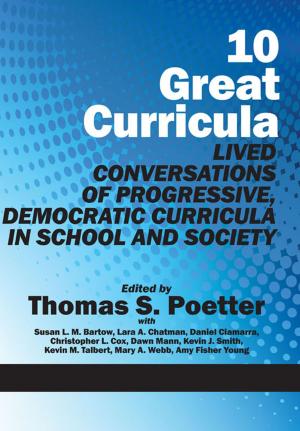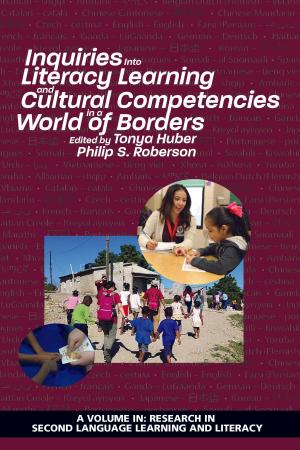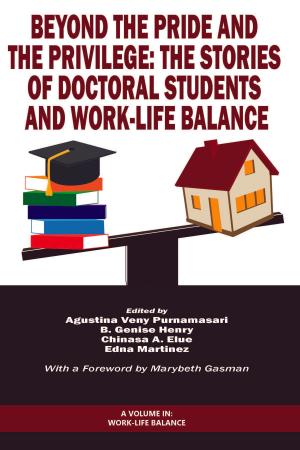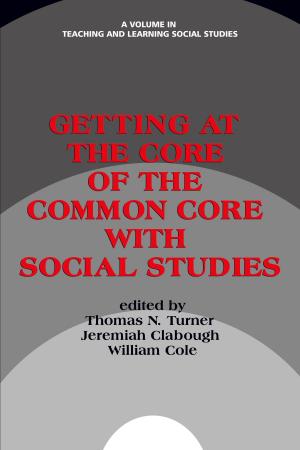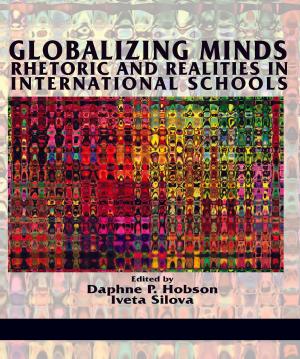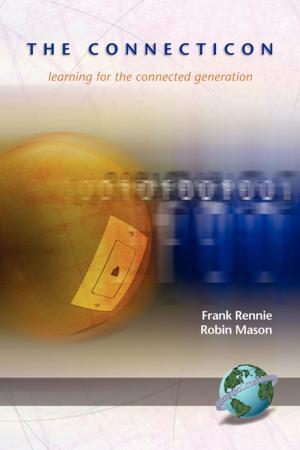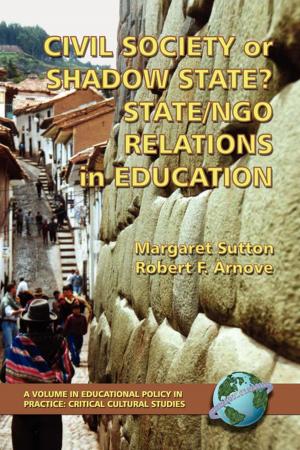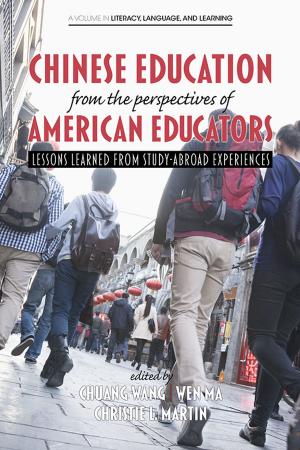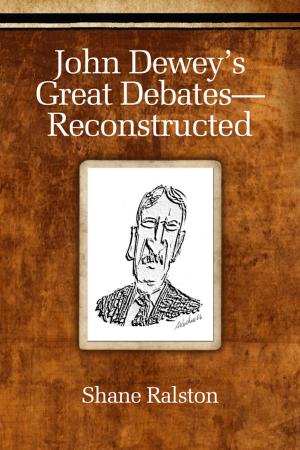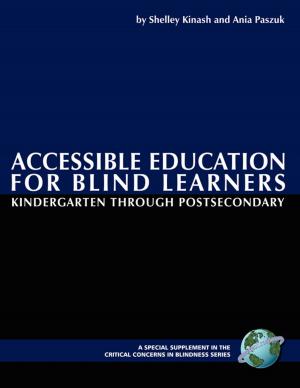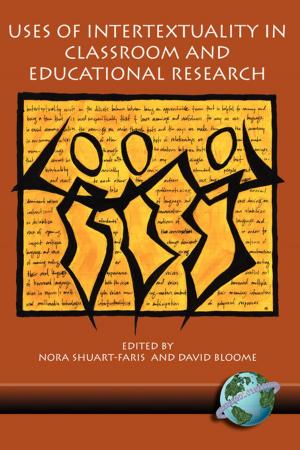Seeing Beyond Blindness
Nonfiction, Social & Cultural Studies, Political Science, Politics, Social Services & Welfare, Reference & Language, Education & Teaching, Higher Education| Author: | ISBN: | 9781607525714 | |
| Publisher: | Information Age Publishing | Publication: | June 1, 2006 |
| Imprint: | Information Age Publishing | Language: | English |
| Author: | |
| ISBN: | 9781607525714 |
| Publisher: | Information Age Publishing |
| Publication: | June 1, 2006 |
| Imprint: | Information Age Publishing |
| Language: | English |
This book is intended for four intersecting groups of readers. If you are a philosopher, closet or sanctioned, then you cannot ponder the nature of being without due consideration for vision, and cannot contemplate the role of seeing in our lives without listening to the stories of those who are blind. The tales within this text are particularly contemporaneous because they are contextualized by the cyberphenomena of online learning. This segues to the second group of readers, as the described empirical research was originally intended to bring greater depth and breadth of understanding to the field of educational technology, particularly as it intersects with disability studies. There is a paucity of published literature that has inquired into disabled online learners, and this research study responds to that call. Third, this book may be used as a textbook on approaches to interpretive empirical research. It is as close as one may come to a recipe, walking students through a specific example. Because it is situated in actual empirical research, the intention was that it avoid the trap of being prescriptive or formulaic. Finally, the text is intended for readers interested in the field of blindness. The text reviews some of the seminal and contemporary research on blindness, and then presents an elaborated example of what we can and should expect to emerge in the knowledge production industry, changing what it means to be blind.
This book is intended for four intersecting groups of readers. If you are a philosopher, closet or sanctioned, then you cannot ponder the nature of being without due consideration for vision, and cannot contemplate the role of seeing in our lives without listening to the stories of those who are blind. The tales within this text are particularly contemporaneous because they are contextualized by the cyberphenomena of online learning. This segues to the second group of readers, as the described empirical research was originally intended to bring greater depth and breadth of understanding to the field of educational technology, particularly as it intersects with disability studies. There is a paucity of published literature that has inquired into disabled online learners, and this research study responds to that call. Third, this book may be used as a textbook on approaches to interpretive empirical research. It is as close as one may come to a recipe, walking students through a specific example. Because it is situated in actual empirical research, the intention was that it avoid the trap of being prescriptive or formulaic. Finally, the text is intended for readers interested in the field of blindness. The text reviews some of the seminal and contemporary research on blindness, and then presents an elaborated example of what we can and should expect to emerge in the knowledge production industry, changing what it means to be blind.
